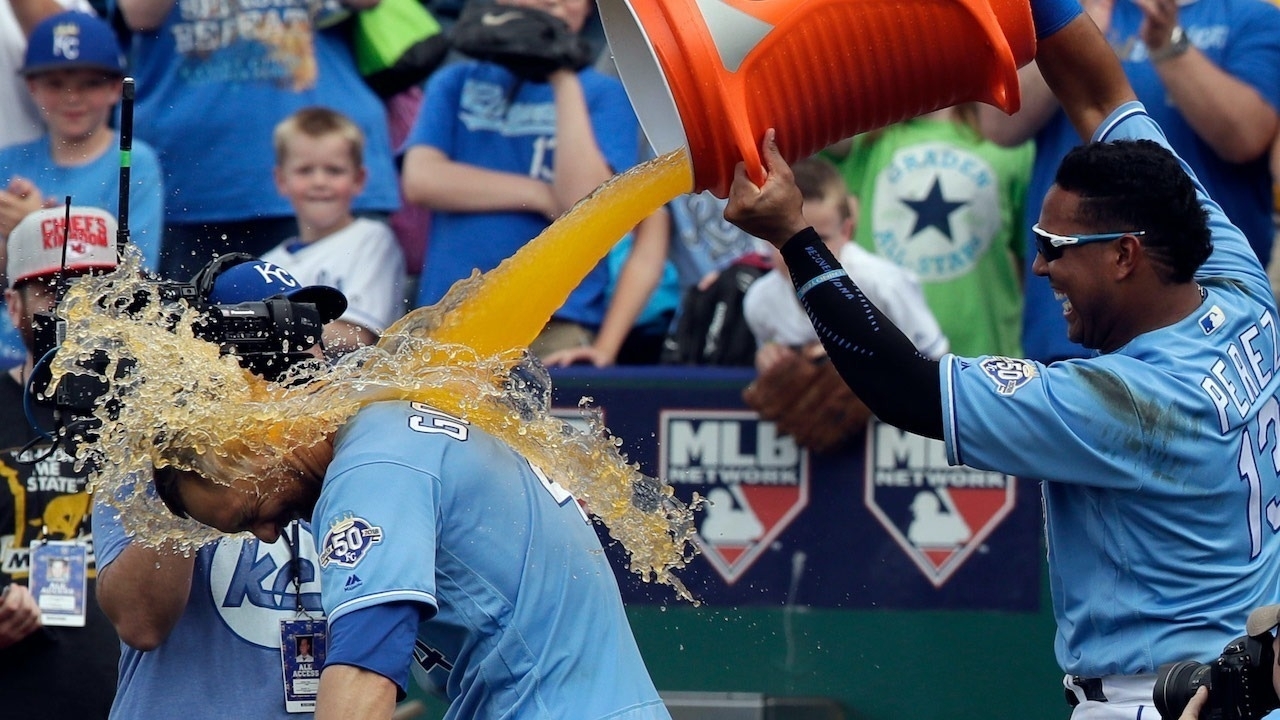One of the joys of the pandemic has been the return of baseball. (Congrats to the Dodgers on their World Series win. We’ll get ‘em next year KC!) I’ve started to think a lot about my local team and some of the fun quirks of the game. All sports have superstitions and illogical practices, but baseball is bathed in them. Rally caps anyone?
One of my favorite young pitchers would always jump over the chalk lines on his way back to the dugout when an inning ended. It wasn’t that he simply didn’t step on the chalk line, he jumped over it so there was no chance that he would step on it accidentally.
Another favorite player adjusts his batting gloves between every pitch. Not every at bat or after every swing, but after every pitch. He pulls back the velcro, tightens it, then grips his bat and gets back into his stance. Thank goodness the MLB put rules in place about batters not leaving the batter’s box during their at bat. If not each of his at bats would take 10 minutes.
Perhaps my favorite quirk of baseball is the pre-game routine. There are pitchers who play long toss across the width of the outfield. There are position players who stretch in a certain order for a certain amount of time before they take batting practice. And of course there are managers and coaches who write their lineup cards in elaborate handwriting.
These rituals might seem strange, but they plan an important function. Pre-game rituals help players mentally prepare for the game. That might seem obvious, the need to get ready before you play, but playing sports at a high level requires players to have incredible consistency and focus. No matter what happened at home, during the drive to the game, or what personal issues a player is going through, in order to be successful during the game they need a way to be mentally and physically ready. That’s why successful players can be obsessive about their pre-game rituals. It’s one of the steps that takes them out of their normal life and places them in the mindset of competing and performing.
You and I may not be professional athletes, but we all have important work to do each day. Some of that work is likely hard, or boring, or not the kind of thing we want to do today. To be successful, to perform at a high level, we need to find our own rituals that prepare us mentally and physically for our work. Rituals and habits that help us set aside the other things going on in our life and that let us make our art, wherever type of art our work calls for.
Now that many knowledge workers work from home, this is even more important than before. You can only show up in your ratty pajamas to a full day of work so many times before our work starts to feel like a bad dream.
Take time to think about your rituals. Codify them, even if only in a simple way. For me, my morning starts with a hot cup of Yerba mate, reading RSS feeds, and arranging my desk. Then I review my calendar, make notes of to do items that I’ll need for each meeting, then I block out time for deep work and note what that work will be. Once that’s done, then I’ll open my work email and chat apps and start to go through the inboxes. Those two things are some of my least favorite tasks, but they are important for my work. By starting with things I enjoy (a hot drink and reading interesting articles), moving on to things that get me excited for the day (planning for meetings and setting aside time for projects I like), I’m ready to start tackling the things I don’t really like but need to do well on.
Find your rituals. Make then an important part of your day. Consistently do them, because they will lend consistency to your work and to your art.
